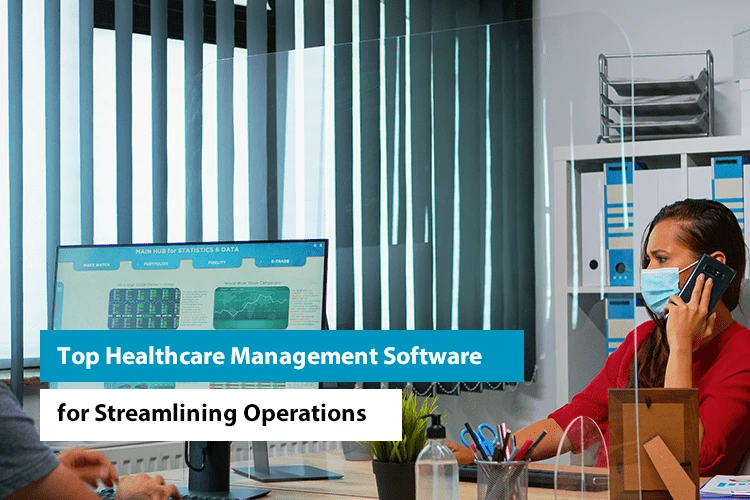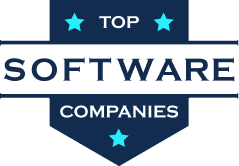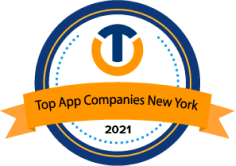Essential Strategies for Offshore Development: The Complete 2024 Guide

Ever wondered how businesses keep up with this crazy pace of technology and remain competitive in today’s Global market?
Offshore development remains at the apex of all the strategies that have deflected the course of action in a world where time is equated to money. Of this whopping 67%, the company takes out software development tasks to other offshore teams. There is hardly a shred of doubt that important processes are connoted with this trend and are a cornerstone of the modern business strategy.
But what does that success look like in this very dynamic and changing landscape? So, come with us as we dive into the most current and highly effective strategies of offshore developers of 2024. We are going to reveal the secrets needed to empower global talent, increase the efficiency of your operations, and boost innovation.
1. Embrace Agile Methodologies
Agile methodologies are currently the hot trend in the software development industry now, but to a team working on projects, it is simply another approach to comparing how teams work on projects and collaborate. Agile methodologies include Scrum, Kanban, Extreme Programming offers a set of principles and practices aimed at promoting development that involves iterations, flexibility, as well as customer-centricity. The following discussion provides an expanded understanding of why offshore development teams should accept Agile methodologies wholeheartedly:
Iterative Development
Agile methodologies focus on breaking down large projects into smaller iterations or sprints that can easily be dealt with. This brings out the benefit for an offshore team as it will have a focus on delivering incremental value at every iteration for the client or end users. Offshore teams develop dynamic market conditions by working in a manner that makes room for constant iterations of the product and improved requirements over time from the feedback given by evolving needs, where changed needs of stakeholders find satisfaction.
Flexibility and Adaptability
Issues that often hamper offshore development projects are problems with the time zone, cultural differences, and changing client requirements. In agile methodologies, there is a defined framework for embracing change and quickly responding to unforeseen circumstances. Agile teams focus on being flexible and adaptable, and that allows them to change project scope, adjust priorities, and revise timelines as per emerging business needs and feedback. This would be even more important for an offshore team working in dynamic environments where requirements may change frequently.
Collaboration and Communication
Agile methodology supports clear lines of communication and close collaboration between all members of the cross-functional team, regardless of their location, the magic needed for success in offshore development projects.
It enables real-time communication and a common idea of objectives and tools through daily stand-up meetings, sprint planning sessions, and regular demos. Team members can use tools like Slack, Jira, and Confluence to interact and smoothen their workflows.
Ongoing Improvement
Agile methodologies build a culture of relentless upturn where teams reflect often on their process in search of ways to enhance efficiency and quality. Furthermore, it could be inculcated into the mindset of offshore development teams to read up on their performance regularly, point out flaws, and introduce improvements accordingly.
Retrospective meetings help offshore teams to have a look back at how things went well, what did not, and how they could do things better the next time. A culture of continuous upgrades in operations can enhance the effectiveness, productivity, and collaboration of offshore teams.
2. Invest in Communication and Collaboration Tools

As a result of investing in communication and collaboration tools, geographical distances can certainly be reduced, effortless collaboration can take place, and successful implementation of complex projects can be achieved.
They bridge the geographical gap between offshore development teams, making integration possible for an effective work experience regardless of where the teams are located in the world.
Let’s consider in more detail because offshore development teams should focus on investing in communication and collaboration tools:
Real-Time Communication
Offshore software development teams often have problems because they are in different time zones and can’t meet in person. Real-time tools help by letting them have online meetings, share ideas, and work on projects together. These tools aid in instant interaction among team members to discuss issues and make decisions without any hassle. Such tools aid in instant communication among team members to discuss issues, share ideas, and make decisions without any delays.
Instant Messaging Platforms
This is very convenient for the offshore team to keep in touch throughout the day through instant messaging tools like Slack or Microsoft Teams. They support one-to-one and group messaging, which allows team members to reach out quickly for queries, clarifications, and sending updates.
Instant messaging platforms support channels, threads, and integrations with other tools that will make communication flawless and everybody aware and remain involved irrespective of geographical location.
Project Management Software
Offshore development projects are successful because they are well-managed. This is due to the efficient management of projects that includes project management software like Jira, Trello, or Asana, which aids offshore teams in planning, tracking, and managing their work efficiently.
These tools let groups create tasks, set deadlines on them, hand out responsibilities, and monitor progress instantly. Real-time exposure to project status or progress through project management tools, therefore, helps the offshore team nail down bottlenecks and risks at projects and ensures that projects are delivered on time and within budget.
Virtual Whiteboarding Tools
Sometimes, collaboration needs ideation, brainstorming on solutions, and sketching out these concepts. Virtual whiteboarding tools such as Miro or MURAL provide for real-time collaboration over a digital canvas among an offshore team working on diagrams, wireframes, and mock-ups.
Such tools provide sticky notes, drawing tools, and interactive templates that could be used by teams in ideation and iteration. Virtual whiteboarding furthers the imagination, promotes participation, and facilitates collaboration despite physical distance.
Document Sharing and Version Control
Besides a strong communication framework, collaboration requires frictionless sharing and collaboration on documents, code, and other files. Document sharing and version control tools—such as Google Drive, GitHub, or Bitbucket—facilitate collaboration on documents, spreadsheets, presentations, and code repositories among the offshore teams in a very secure way.
These tools provide support for several features, including file sharing with commenting and real-time version history, which ensure everyone has access to the most recent information with proper change tracking and documentation.
3. Prioritize Security and Compliance
The offshore development teams place security and compliance first to ensure that sensitive data is not exposed to any type of risk by having a strong point of trust with clients and other stakeholders. The more connected the world is, the more cases of data breaches and involved cyber risks reach unprecedented heights.
The offshore development teams have to take up hard security standards and determinants in securing valuable assets and demonstrating compliance with relevant laws and regulations. Let’s explore why prioritizing security and compliance is crucial for offshore development:
Data Protection
The offshore programming teams handle a lot of sensitive information. This includes intellectual property, personal details, financial records, and confidential business information. All this information must be protected from unauthorized access to entities or disclosure or manipulation of information and help maintain the integrity and privacy of information.
Thus, these offshore teams should have in place and enforce quite strong measures to protect their data using encryption, access controls, and DLP solutions at all times while in transit or at rest.
Regulatory Compliance
Very strict regulations are imposed on the privacy, security, and confidentiality of data by many industries including finance, healthcare, and government. These regulations must be followed by offshore development teams irrespective of whether it is General Data Protection Regulation (GDPR), Health Insurance Portability and Accountability Act (HIPAA), Payment Card Industry Data Security Standard (PCI DSS), or any other. Such regulations not only help protect the interest of organizations from legal liabilities and financial penalties but also helps build trust and credibility in the eyes of the clients and customers.
Secure Development Practices
It is also recommended that security countermeasures be adopted in the software development life cycle period, starting from design and development phases up to testing and deployment. Some of the techniques for secure coding include input validation, output encoding, proper error handling, and other good programming habits with respect to averting common security vulnerabilities such as cross-site scripting, SQL injection, and buffer overflow.
Frequent updating of the security code can help in the early detection of security weaknesses during the development cycle. Regular security code reviews, static and dynamic application security testing (SAST and DAST), and penetration testing ensure that security flaws do not become breeding grounds for hackers.
Secure Infrastructure
The security of the underlying infrastructure forms an integral part of the general security posture of remote development environments. Distributed teams should take benefit of secure hosting providers, such as Amazon Web Services (AWS), Microsoft Azure, or Google Cloud Platform (GCP), that have good security features and compliance certifications.
This comprises network segmentation, firewalls, intrusion detection and prevention systems (IDPS), and endpoint security solutions to prevent unauthorized access, malware, and other cyber-attack vectors.
Employee Training and Awareness
Human error is one of the major causes that bolster security breaches and incidents. As such, it is advisable to make adequate investments in proper security training programs to increase employees’ awareness regarding common security threats, good practices, and compliance requirements. These may include, but not be restricted to, phishing awareness, good password hygiene, approaches for mitigating social engineering, and incident response processes.
A reasonably enhanced security posture of an offshore team could decrease the potential for incidents, easily deterred or muted, simply by endowing their staff with the knowledge and wherewithal to identify and act against threats to security.
Incident Response and Management
Even with all security incident prevention measures in place, security breaches still do happen. Thus, offshore software teams should implement incident response and management procedures that will enable them to effectively detect, investigate, and mitigate security breaches.
Clearly defined escalation procedures, incident response teams, and communication protocols set an authority line clear in responding to security incidents cohesively and effectively. This will help identify areas for improvement by reviewing the incident and lessons-learned exercises, that will in turn strengthen an organization’s resilience to future threats.
4. Foster a Culture of Continuous Learning

The utmost importance for offshore development teams to stay relevant, novel, and competitive in the current fast-moving technology scenario is a culture of continuous learning. Adaptability and learning have thus become the most important drivers toward success and quality solutions in the face of an industry that continuously evolves through the creation of new tools, frameworks, and methodologies relatively quickly. Now let’s discuss why the adoption of the culture of continuous learning is so important for offshore development teams:
Adaptation to Technological Advances
The technology world keeps on changing. New programming languages, frameworks, and tools are invented every day. An offshore programming team needs to be updated about new developments to maintain competitiveness and offer new solutions to clients.
The readiness of any offshore team to encourage its members to keep an eye out for new technologies and experiment with new approaches to learning new skills may enhance the effectiveness and productivity of its members.
Mastery of Best Practices
Software development is a rather complex, multi-faceted discipline with several methodologies, best practices, and techniques. Hence, tech teams need to focus on the continuous learning process to master the standard industry practices of agile methodologies, test-driven development (TDD), continuous integration and deployment (CI/CD), and DevOps principles. By developing their potential and skills in these areas, offshore teams can smooth out development processes, enhance code quality, and better deliver value to clients.
Skill Enhancement and Specialization
Each member of the offshore development team brings different skills, experiences, and perspectives to the table. A culture of continuous learning could enhance skill improvement and specialty among offshore team members even further.
Be it mastering a new programming language, gaining further expertise in any specific domain, or getting certifications in relevant technologies, continuous learning will help team members grow in capability and contribute better toward the success of projects.
Innovation and Creativity
Continuous learning cultivates a sense of inquiry, experimentation, and innovation within offshore development teams. One can empower the team to come up with new ideas, challenge traditional thinking, and find out-of-box solutions for offshore teams to invent and bring creativity into their solutions.
Hackathons, innovation challenges, and other cross-functional collaboration initiatives can be organized to unleash knowledge and skills in solving complex problems and generating new insights.
Employee Engagement and Retention
Investing in ongoing learning keeps team members focused on growing professionally, bringing a sense of purpose, joy, and loyalty. Offshore growth teams that put learning first tend to draw in top talents, keep skilled workers, and foster a team environment that works well together. Chances for coaching, mentoring, and training help team members reach their full potential and play a big part in the organization’s success.
Adaptation to Changing Market Demands
The needs and preferences of clients and end-users are constantly changing in response to market trends, technological advancements, and competitive pressures. Teams working from faraway places need to keep up with these changes by always learning about what’s new, what customers think, and where chances are popping up.
By staying on top of things, these teams can see changes coming, spot new tech early, and move quickly to grab new chances. This keeps them important and able to compete in the market.
5. Build Strong Relationships and Trust
Building strong relationships and accept as true with is foundational for the achievement of offshore development teams. In a disbursed work environment wherein team members can be positioned across special time zones and cultural backgrounds, organising rapport, fostering open verbal exchange, and cultivating believe is important for collaboration, productivity, and project achievement.
Let’s discover why building sturdy relationships and consider is crucial for offshore development teams:
Communication and Collaboration
Strong relationships and believe form the bedrock of powerful verbal exchange and collaboration within offshore programming teams. Establishing open lines of verbal exchange, each formal and informal, enables team contributors to share ideas, ask questions, and offer remarks freely.
By fostering a subculture of transparency, respect, and empathy, offshore teams can triumph over communication boundaries and construct trustful relationships that facilitate seamless collaboration and coordination across distributed groups.
Alignment and Shared Vision
Build strong relationships and trust, which will help team members feel united and have a sense of purpose. If team members trust and connect, they are more likely to rally around common goals and work toward a shared vision.
Regular communication forums, such as team meetings, stand-ups, and retrospectives, serve as a means for offshore teams to unite around priorities, clarify expectations and reinforce shared values, strengthen a sense of unity, and build collective ownership of project outcomes.
Conflict Resolution and Problem-Solving
Conflicts and disagreements are part and parcel of any team setting including offshore programming teams. However, strong relationships and trust provide for a base on which to resolve conflicts constructively and collaboratively.
The offshore teams could assist in creating an atmosphere of psychological safety and respect by keeping the lines of communication open and ensuring that every member would develop into an active listener and an empath, which would allow expressing conflicts openly with mutually agreeable solutions. This, in turn, builds good relations, enhances teamwork, and makes the team more resilient toward problems and able to overcome hurdles.
Accountability and Reliability
The account of trust is based on accountability and reliability. Members of a team trust each other to deliver on their commitments and expectations, leading to seamless and effective collaboration. Offshore teams can establish a sense of accountability through goal setting and the definition of clear, measurable objectives.
Team members are made accountable for the actions they take and the results they achieve. There is a provision for much-needed progress updates, status reporting, and milestone reviews to track progress and prevent potential problems by getting things back on track.
Cultural Sensitivity and Inclusivity
A typical offshore development team includes professionals from various diversified backgrounds. This brings in a variety of perspectives, experiences, and styles of communication. Building strong relationships and trust calls for cultural sensitivity, empathy, and inclusivity.
Offshore teams should embrace diversity and strive to understand and value each other’s differences in culture. An inclusive and respectful environment will eventually lead the members of offshore teams to use their joint and individual strengths innovatively and creatively.
Social Connections and Team Building
The extremely important feature of offshore development teams would involve social bonding and expression through the application of non-work-related interactions. In this regard, virtual team building through online games, virtual coffee breaks, and informal chats provide the necessary opportunity to bond, develop rapport, and build relationships with each other.
They are also a great way to celebrate service anniversaries, milestones, birthdays, and cultural holidays, creating a sense of brotherhood and togetherness so that a team’s morale and solidarity are enhanced.
6. Leverage Automation and AI Technologies

With the use of automation and artificial intelligence (AI) technologies, offshore development teams can make the entire process more efficient and effective to deliver quality solutions and increase speed. Offshore teams now must gear up and adopt automation and AI – trying to outperform each other to meet the growing demand for software development with the client’s needs constantly changing. Let’s take a closer look at why offshore development teams should take advantage of this:
Efficiency and Productivity
Automation and AI techniques will assist offshore development teams by automating the routine code creation process, testing, deployment, and maintenance processes. Any offshore team will thus reduce manual efforts with respect to any software solution and reduce errors by automating such common processes.
Automation of such routine processes will help reduce the manual effort involved in building any software solution and, in turn, reduce errors, thereby speeding up time-to-market. Continuous integration and deployment (CI/CD) pipelines, automated testing frameworks, and code creation tools will make the offshore team’s workflow much smoother and more efficient, delivering value to clients quickly.
Quality Assurance
Quality and reliability in software products are the most significant factors for any offshore development team. State-of-the-art AI-powered testing tools, including machine learning-based test case prioritization, anomaly detection, and predictive analytics, help offshore teams uncover defects, vulnerabilities, and performance bottlenecks timely in the development life cycle.
With AI-driven automated testing and quality assurance, one can build up an offshore team for reliability, scalability, and security of solutions while minimizing the chance of defects and offering a better user experience to end-users and clients.
Predictive Analytics and Insights
AI technologies allow offshore development teams to analyse enormous sets of data and make useful insights, which go a long way in making commercially valuable decisions. Harnessing historical project and organizational data, the predictive analytics algorithms can spot trends and forecast future trends in aid of the offshore team’s data-centric decisions in resource allocations, minimization of risks, and project planning. By using AI for predictive analytics, it supports offshore teams in process refinement, risk reduction, and better deliverables for the client and other stakeholders.
Natural Language Processing (NLP) and Chatbots
Natural language processing (NLP) and chatbots enable the automation of communication and support processes between offshore development teams and the clients, making those processes responsive and creating a better user experience.
Chatbots can interact with the client and end-users, answering questions frequently asked, and providing support and obtaining feedback while other more complex tasks are left to human resources. Hence, simple and efficient communication via NLP and chatbots for an offshore team will reduce response time and increase customer satisfaction, subsequently boosting business growth and retention.
Intelligent Resource Allocation
AI technologies help an offshore development team in both resource allocation and project planning activities pertaining to timely completion and budgeted expense. Machine learning algorithms analyze critical historical project data, identify resource bottlenecks, and suggest optimal resource allocation for specific tasks.
Artificial intelligence enables an offshore team to use optimized workflows backed by intelligent resource allocation to maximize productivity and deliver projects profitably and with satisfaction.
Continuous Improvement and Innovation
Automation and AI technologies allow for a culture of continuous improvement and innovation within offshore development teams. This approach helps in the automation of monotonous work, which in turn allows the offshore team to use time and resources on experimentation, exploration, and creativity.
When innovation in areas like generative design and automated code generation goes to mainstream use, such AI-driven innovative tools will provide offshore teams with skills to explore new ideas, prototype solutions, and push limits. Embracing automation and Artificial Intelligence for continuous improvement and innovation ensures that offshore teams not only stay ahead of the curve in terms of technological innovation but also deliver value to clients in new and exciting ways.
7. Stay Agile and Adaptable
Offshore development teams must be flexible and adaptive due to the nature of dynamic and changing software development. In the face of rapidly changing technologies, market demand shifts, and other unexpected challenges, offshore teams must be agile and adaptive to stay competitive and deliver value to clients.
Here’s a detailed look at why keeping agile and adaptable is critical for offshore development teams:
Rapid Response to Change
Agility enables offshore developers to respond with speed and effectiveness to changing requirements, market conditions or client expectations. Naturally, through iterative development, regular feedback loops and continuous improvement, such offshore teams manage to adapt simultaneously to the change of project plans and priorities according to evolving business needs and client preferences. Agile methodologies, such as Scrum or Kanban, provide a flexible framework for adapting to change and delivering staged value in the presence of uncertainty.
Flexibility in Project Management
Most offshore development projects face unforeseen challenges such as scope creep, resource constraints or technical difficulties. By nature, Agile project management methodologies, for example Scrum, accept uncertainty and change plans conditionally.
In this case, offshore teams can divide the project into small and manageable sprints or increments and prioritize work based on changing priorities, deliver value iteratively, and correct course when needed. Regular retrospectives and sprint reviews give room for reflection and adaptation, assuring that offshore teams improve their processes and results.
Embracing Innovation and Experimentation
Agility enables remote developers to welcome creativity, experimentation, and risk-taking. Offshore teams have a learning culture where creativity, curiosity, and learning inculcate new ideas, technologies, and approaches in solving problems. Agile methodologies provide a framework for iterative experimentation that allows offshore teams the ability to prototype solutions, gather feedback, and then iterate based on the lessons learned.
This encourages offshore teams to keep experimenting and innovating so that they discover new avenues and continuously bring improvement to bear on their efforts toward delivering innovative solutions that meet and exceed client expectations.
Continuous Learning and Improvement
Agility encourages offshore development teams to continuously learn and improve. The growth mindset is present with feedback seeking and reflection on past experiences which opens offshore teams to find opportunities for growth and development.
Agile practices have built-in mechanisms such as retrospectives, feedback loops and adaptive planning, which provide hooks for continuous improvement. Cultural modelling on continuous learning and improvement also helps develop skills, optimise processes and bring better results for customers and stakeholders.
Customer-Centricity
Agility emphasizes the delivery of value to customers and end-users as strongly as possible. But offshore development teams should sweat more on the understanding and elicitation of customer needs and iteration based on user insights. Agile methodologies emphasize involving the customers in the development process, getting them to participate by sourcing feedback early and often, and incrementally delivering a solution.
Staying customer-centric and sensitive to user feedback means that the offshore teams can be sure that their solutions meet the expectations of clients and end-users in the best possible way, thus driving customer satisfaction and loyalty.
Conclusion
Offshore development delivers compelling benefits for firms looking to utilize global talent, scale operations, and speed product development. Business organizations can realize the full potential of Offshore Development in 2024 and beyond by adopting the best practices of Agile methodologies, communication-collaboration tools, investment in safety and compliance, culture of learning, building strong relationships with trust, leveraging automation and AI technologies, and staying agile and adaptable.
We’re honored to mention that our efforts have been recognized by renowned B2B review and research platforms such as GoodFirms, Clutch, MirrorView, and many more.
Want more information about our services?
Similar Posts

Google Cloud vs. AWS: A Comparison of Cloud Computing Services
Are you currently navigating the intricate cloud computing landscape, pondering which industry titan – Google Cloud or Amazon Web Services (AWS) – holds the key to unlocking your business’s true potential? Fear not, for we are here to guide you through this compelling journey of exploration and comparison. In today’s dynamic business environment, cloud computing […]...

The Evolution of AngularJS Development in 2024
The Rise of AngularJS: A Glimpse You will be amazed to discover that over 30% of the world’s developers have already incorporated AngularJS in their projects. You heard right, as this powerhouse framework has already been changing the notion of web app development, and this change is nothing but extraordinary in 2024. At Imenso Software, […]...

Top Healthcare Management Software for Streamlining Operations
Are you looking for the top healthcare management software to streamline your business operations? You have come to the right blog, stay along to know all about them! Did you know that doctors and nurses spend nearly 49% of their time on paperwork rather than patient care? That translates to spending Monday and Tuesday purely […]...








